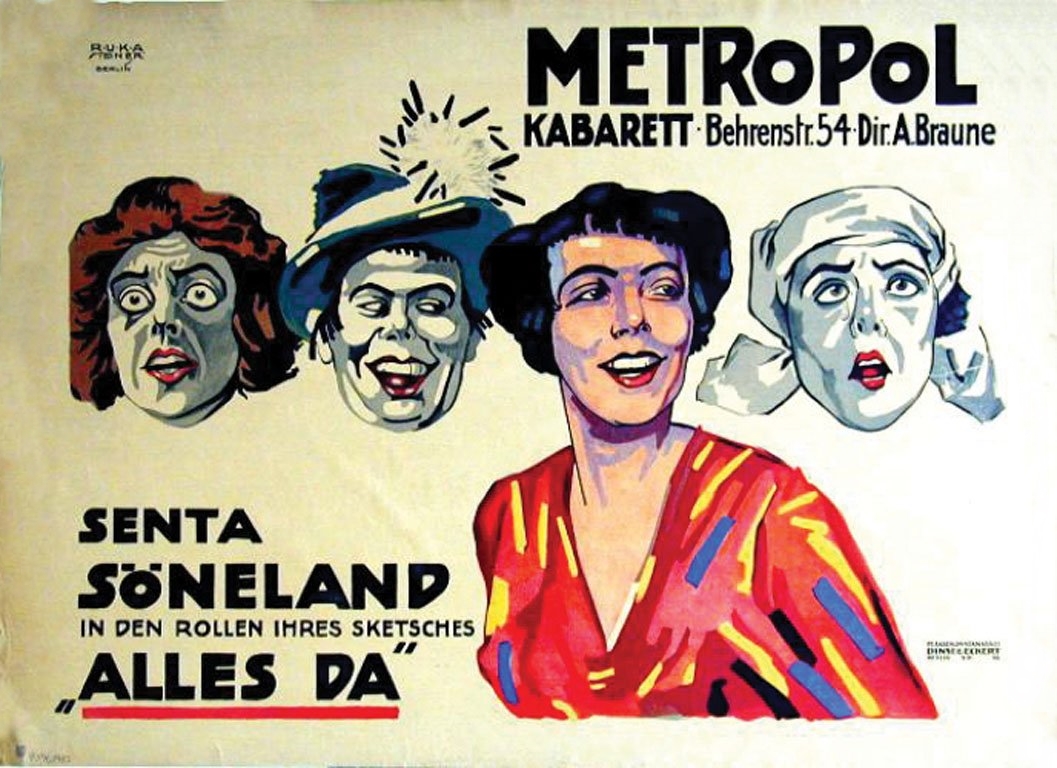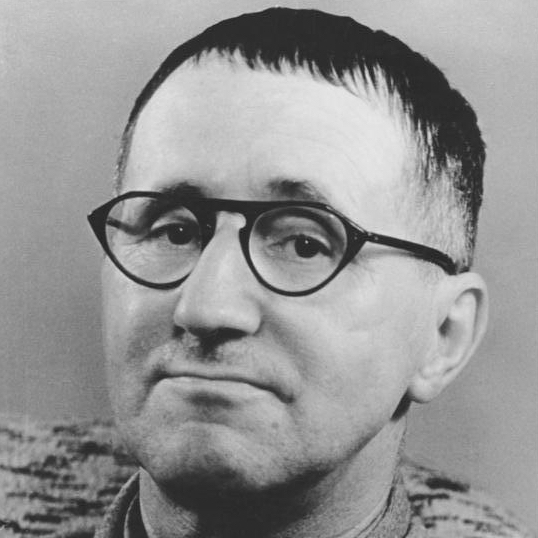

Bertolt Brecht
Bertolt Brecht was 26 when he moved to Berlin. He was about to take up the role of Dramaturg at Max Reinhardt’s Theater am Kurfürstendamm and moved into a fifth-floor attic apartment in nearby Spichernstraße. His first two full-length plays Baal and Trommeln in der Nacht (Drums In The Night) had already been produced in Munich and he had won the Kleist Prize for emerging literary talent.
Two years earlier, in 1922, the young poet performed some of his work at Trude Hesterberg’s Wilde Bühne cabaret and caused a near-riot due to its controversial content.
He performed his songs Jakob Apfelböck – about a boy who murders his parents – and the grotesque war song Die Ballade vom totem Soldaten (The Ballad of the Dead Soldier).
The song, written in 1918, describes how the German Army, short on manpower in the last months of the First World War, dig up a soldier who has already died in battle. They fill him with schnapps, douse him in incense to cover up the smell, and send him back to the Front to once again die a ‘hero’s death’…
“This bitter work, which also attacked military doctors, churchmen, and chauvinist citizens, caused a scandal at it’s first performance, and Hesterberg had to drop the curtain until the audience quietened down.”
Peter Jelavich – Berlin Cabaret
Brecht would go on to become one of the theatrical voices of his generation, collaborating with composer Kurt Weill on iconic productions such as Die Dreigroschenoper (The Threepenny Opera) and Aufstieg und Fall der Stadt Mahagonny (Rise and Fall of the City of Mahagonny). A late-addition to Die Dreigroschenoper was the song Die Moritat von Mackie Messer which would go on to achieve worldwide fame and become a twentieth century classic as Mack The Knife.
He fled Berlin in 1933 and settled in Denmark, travelling frequently to work around Europe and the US. With the onset of war and the German invasion of Denmark, Brecht and his family fled again, first to Finland and then, in May 1941, to the United States.
He returned to East Berlin in 1949 and founded the Berlin Ensemble along with his wife, and longtime collaborator, the actress Helene Weigel.
He died of a heart attack on August 14th 1956 and is buried alongside his wife in the Der Dorotheenstädtisch- Friedrichswerdersche Friedhof in Berlin’s Chausseestraße, in the shadow of the home they shared.
‘Die Ballade vom toten Soldaten’ performed by Ernst Busch
